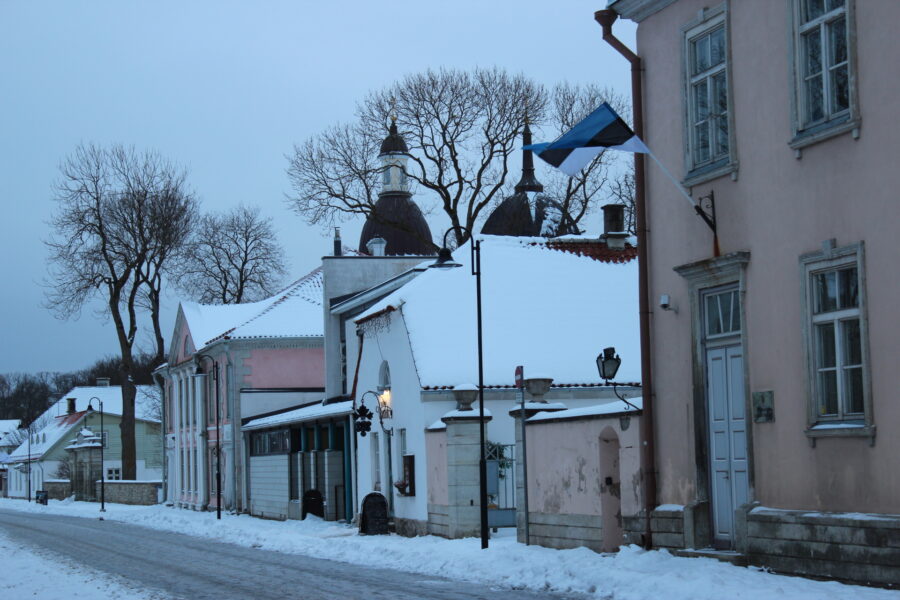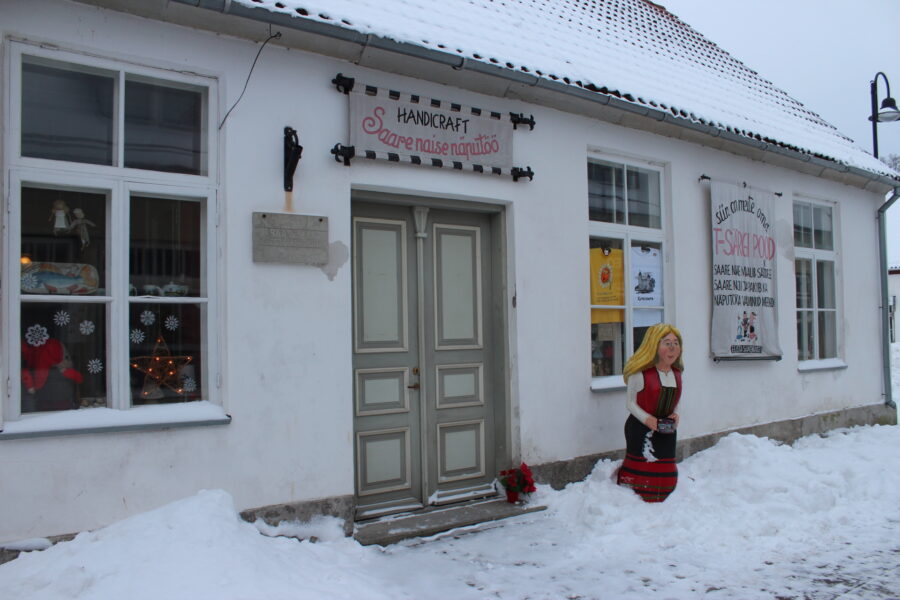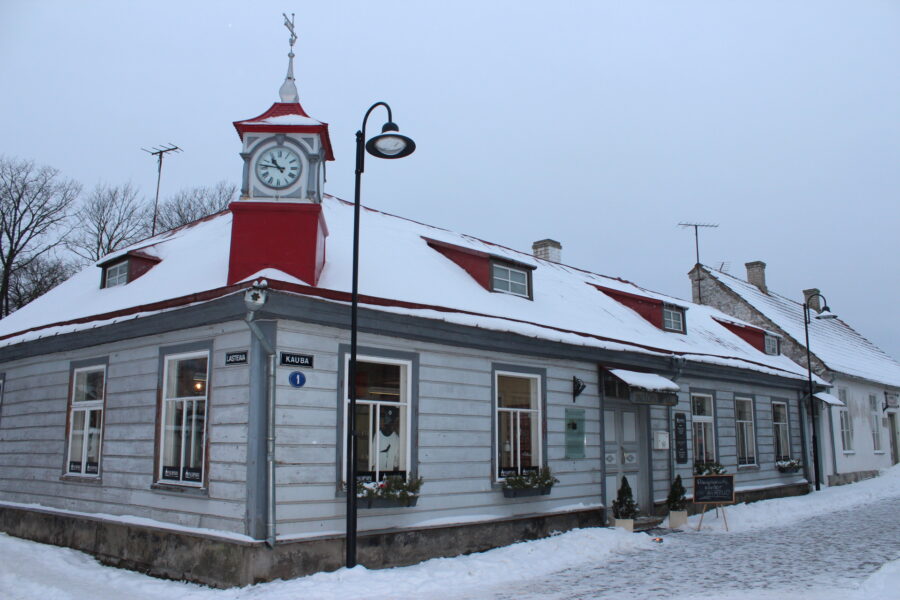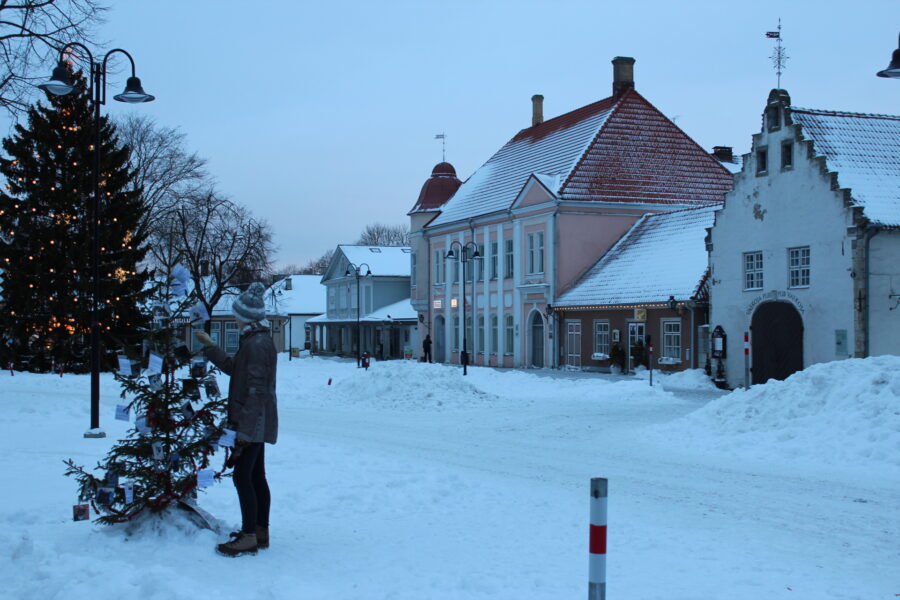NordenBladet —
The Prime Minister noted that the decisive factor in achieving of the goals set in the strategy “Estonia 2035” would be our ability to direct the local research and development in such a way that it would support the need of Estonian people and society in the best way. “In addition to the fundamental research based on researcher’s curiosity, we will need more applied research that would support society and economy. No one else in the world will undertake to study the challenges of Estonian society, economy and environment in order to improve the standard of living of our people. We will have to do it ourselves,” the Prime Minister said.
According to Kallas, we have been increasing the budget planned for research and development continuously for several years already. “Never have more funds been allocated for research and development from the state budget than this year, in 2023 – 386 million euro. It is 51 million more than last year. This year, we have directed 45% of the research and development funds in the state budget to increase the capabilities of society and economy,” the Prime Minister said. In her words, we will have to take care that the desired change does not bring about excessive fragmentation and bureaucracy of research funding. “Even more importantly, we also decided to raise extraordinarily the state budget funding of higher education within the framework of the budget strategy in order to make up for the underfunding of higher education institutions that has developed over the years. This is one of the most important agreements of today’s government coalition,” Kallas noted. She explained that, without strong higher education, we could not meet the labour market demand for educated employees or to increase the competitiveness of the Estonian state. In a four years’ time, we are planning to increase the higher education activity support by nearly 130 million euro. Due to underfunding, universities have had to cover the lacking funds for instruction from research funding resources. It will no longer be so in the future.
The Prime Minister pointed out that, in 2021, 551 million euro had been spent on research and development in Estonia which was 15% more than a year earlier. Estonia’s investments in research and development grew considerably faster than those of their neighbours. “We could see a great increase in research spending for a second year in a row and in all sectors, above all in businesses and universities. Public sector research and development spending was 237 million euro in 2021, which was an increase of 13%. In 2021, Estonian businesses contributed 314 million euro to research – 42 million euro more than a year earlier and fifty per cent more than as recently as three years earlier,” the Prime Minister noted.
Growth in R&D expenditure in the private sector is no longer being driven by ITC companies, as was the case for so many years, but by the processing industry, which is responsible for the lion’s share of our export turnover. Processing industry companies have increased their spending on research and innovation by two and a half times in three years.
Kallas noted that the level of our academic research was higher than could be presumed on the basis of our size and wealth. For the first time, the University of Tartu has made it among the 250 best universities in the university ranking created by the journal Times Higher Education. Among educational institutions in ‘New Europe’, this equates to the highest ranking.
The Prime Minister said that turning research results into innovation and thereby a competitive advantage for a business was complicated and time-consuming. In terms of the proportion of applied research funding, we will have to make efforts to catch up with the European innovation leaders. The examples of other countries show that each euro a state invests in applied research generates three to four euro in tax revenue.
The Research and Development Council has recommended that Estonia establish its own centre for applied research, guided by the needs of and options available to local companies. The aim of such a centre would be to support companies in undertaking applied research and to consult them on technological issues, making it possible to systematically transfer the results of scientific work out of the laboratory and into production.
Kallas noted that the Riigikogu had started the deliberation of a major regulation for the research and development and innovation management: the Organisation of Research and Development and Innovation Bill. “It is the result of a complicated and long-drawn-out compromise achieved between the parties. For the first time, we will regulate at the level of Act the mechanisms to support innovation in businesses, and the principles for the organisation of research ethics and open research. I hope that the Riigikogu will deliberate this Bill quickly and think along constructively,” Kallas said.
The Prime Minister emphasised the importance of education to a small country. “Good education will ensure the protection and development of the Estonian culture and language and the competitiveness of the Estonian state and citizens and will save the costs on social aid, health care and security. All talents must be developed, and education must meet the needs of future work,” Kallas said.
During the debate, Marko Šorin (Centre Party), Jaak Juske (Social Democratic Party), Margit Sutrop (Reform Party) and Mihhail Lotman (Isamaa) took the floor.
The Riigikogu passed two Acts
The Act on Amendments to the Water Act (709 SE), initiated by the Government, transposes the EU directive on the quality of water intended for human consumption. The purpose of the Act is to reduce the risks to health and environment related to the supply of drinking water, to optimise the costs of handling drinking water and to ensure safe drinking water to inhabitants. Another purpose of the amendments is to increase consumers’ confidence in tap water, to reduce the manufacture of plastic and waste generation and thereby to protect the environment.
The Act introduces a risk assessment-based approach to the water supply chain. It will also improve people’s access to drinking water and the related information and lay down the requirements for materials that come into contact with drinking water and for water treatment chemicals as well as for reducing water leakages. Obligations are provided for drinking water suppliers, owners of public premises, local governments, the Health Board, the Environmental Board, and the Ministry of the Environment.
59 members of the Riigikogu voted in favour of passing the Act and 16 voted against.
The Act on Amendments to the Release into Environment of Genetically Modified Organisms Act (744 SE), initiated by the Government, brings the Act into conformity with the European Union regulation that aims to ensure increased transparency and to provide citizens and scientists access to all information concerning food safety that the business operator has submitted during the risk assessment process, except for information that can be classified as confidential business information.
With a view to improving transparency, all EU regulations and directives on food, feed and genetically modified organisms have been reviewed and the data that can be classified as confidential business information have been harmonised in the regulation. Earlier, data that may be or must not be confidential business information were listed in various laws and regulations. In the future, only data that can be classified as confidential business information will be listed in all laws and regulations relating to food and genetically modified organisms. The same amendments also need to be made in Estonian legislation.
While the current Act lists the information that must not be classified as confidential business information, now a list of data that can be classified as confidential business information is established. So the amount of information that can be classified as confidential business information will become more limited and defined. This will increase transparency because all information that is not considered confidential business information will be available to the public. The Act is also amended by adding the requirement that, where international standard data formats exist, data will have to be submitted| in accordance with such data formats in an application. This will simplify the comparison of various data and thus the assessment of applications will take less time. The need to inquire additional information from applicants will also decrease.
60 members of the Riigikogu voted in favour of passing the Act and 16 were against.
The Riigikogu concluded the second reading of one Bill
The Bill on Amendments to the State Assets Act, the Land Reform Act and the Local Government Organisation Act (712 SE), initiated by the Government, will make the acts relating to land between local governments and the state simpler and more transparent.
The Bill will harmonise the possibilities to mutually ascertain and exercise public interest upon transfer of lands of the state and local governments, and the state will be given the right to intervene to acquire lands in the event of public interest. When a local government begins to transfer land or constitute the right of superficies on land that it has previously received from the state without charge, it will have the obligation to ascertain whether the immovable property has utility for the state. Upon the return of land to the state, the state will compensate to the local government for beneficial costs incurred on the immovable, provided that these have significantly improved the immovable.
Under the Bill, the compensation and consideration that local governments pay to the state will be reduced from 65 per cent to 50 per cent of the usual value of the land upon further transfer of immovable property received without consideration as well as upon the transfer of immovable property that is suitable for developing the business environment or for use as residential land. At the same time, any beneficial costs incurred on the immovable by the local government can be deducted from the consideration paid to the state. In addition, the term for payment will be extended from five to seven years upon the transfer of immovable property that is suitable for developing the business environment or for use as residential land.
During the debate, Rene Kokk (Estonian Conservative People’s Party) took the floor.
The Riigikogu concluded the first reading of one Bill
The idea of the Bill on Amendments to the Estonian Health Insurance Fund Act and Amendments to Other Associated Acts (renaming of the Estonian Health Insurance Fund as the Estonian Health Fund) (772 SE), initiated by the Social Affairs Committee, is to change the name of the Estonian Health Insurance Fund into“ the Estonian Health Fund”. According to the explanatory memorandum to the Bill, at the time the Estonian Health Insurance Fund was established, its main function of was to administer the solidary health insurance system and to enable health insurance benefits to insured people. However, by today the fund has acquired more functions compared to the time it was established. It is also responsible for the emergency care and the services related to the protection of public health provided to people not covered by health insurance. Due to the changed tasks, it is relevant to change the name of the legal person governed by public law. The new name will be “the Estonian Health Fund”, which emphasizes the final objective of the activities of the fund – to maintain and restore the health of the people. The name “Estonian Health Fund” was considered already at the time the health insurance system was established in 1990-1991. Back then, the name of the Estonian Health Insurance Fund that had been used historically was opted for. 30 years later we are adopting a name that stresses the result of the work of the fund.
During the debate, Henn Põlluaas (Estonian Conservative People’s Party) took the floor.
The Estonian Conservative People’s Party Faction moved to reject the Bill at the first reading. The result of voting: 15 votes in favour and 30 against. The motion was not supported. The first reading was concluded.
During the open microphone, Tarmo Kruusimäe took the floor.
The sitting ended at 6.14 p.m.
Verbatim record of the sitting (in Estonian)
Video recordings of the sittings of the Riigikogu can be viewed at https://www.youtube.com/riigikogu.
(Please note that the recording will be uploaded with a delay.)
Riigikogu Press Service
Gunnar Paal,
+372 631 6351, +372 5190 2837
gunnar.paal@riigikogu.ee
Questions: press@riigikogu.ee
Link uudisele: The Riigikogu received an overview of the situation in research and development activities
Source: Parliament of Estonia



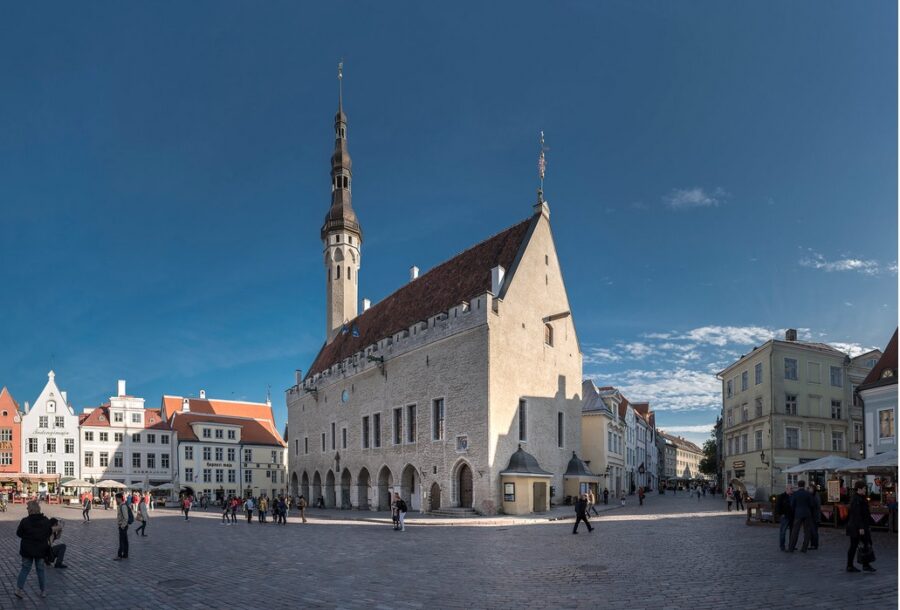
















 Photo: The sauna has been a central part of Estonian life for centuries, serving not only as a place to cleanse and relax, but also as a social gathering spot and a place for spiritual and healing practices. (Pexels)
Photo: The sauna has been a central part of Estonian life for centuries, serving not only as a place to cleanse and relax, but also as a social gathering spot and a place for spiritual and healing practices. (Pexels)















